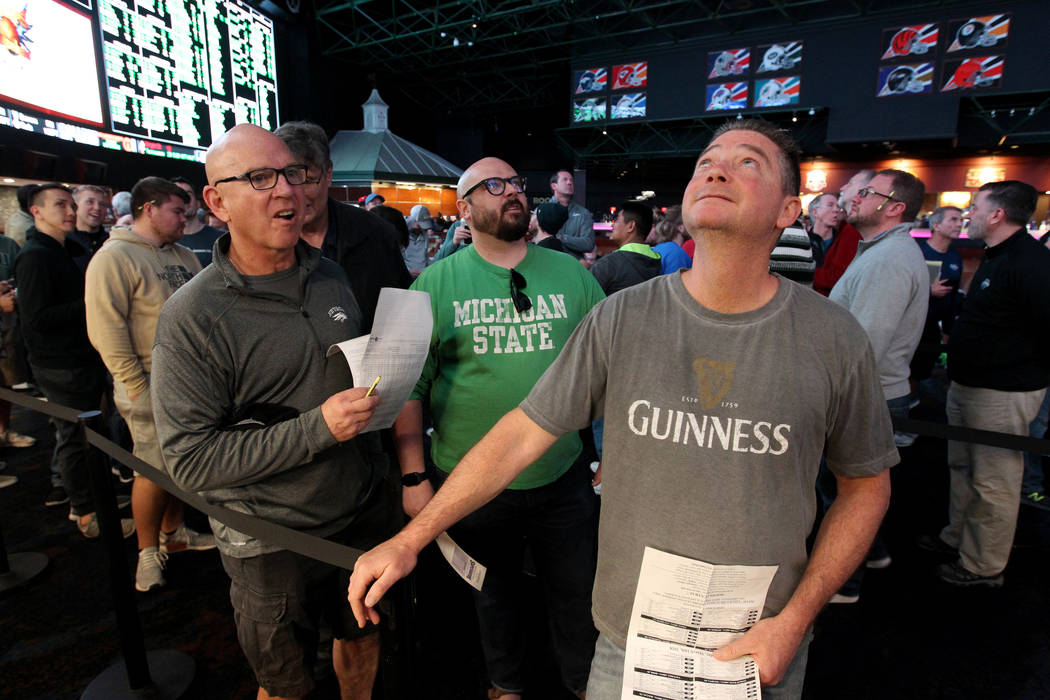7M say they’ll bet on NFL, thanks to repeal of sport betting ban

Two organizations took advantage of the kickoff of the National Football League season this weekend to provide some eye-catching survey results related to how far legalized sports wagering has come since 2018’s repeal of the Professional and Amateur Sports Protection Act.
The American Gaming Association and Eilers &Krejcik Gaming, in separate reports, shared how many people are expected to place a bet on the NFL this year and who bets on sports and why.
“We know from previous research that the U.S. sports leagues have substantial financial opportunity in the legalization of sports betting, and this is particularly true for the NFL,” said Bill Miller, president and CEO of the American Gaming Association. “This year, we wanted to better understand how that increased availability of legal sports betting is impacting bettor behavior and how sports betting impacts fan engagement.”
The AGA, through a survey of 15,000 people conducted by Morning Consult, determined that 7 million Americans say they will bet legally at a casino sportsbook — 1.2 million more than last year — and tens of millions of others will place bets with friends, participate in pools or squares contests or place their bets online.
The 24 percent increase in the number of bettors placing wagers is the result of the rapid expansion of legalized sports betting across the country. At the start of the 2018 NFL season, five states were able to take bets: Nevada, Delaware, New Jersey, Mississippi and West Virginia. Today, that number has more than doubled, and one in five Americans can place sports bets in their home states with all of the protections of a safe, regulated and legal market. Fans can legally bet on their favorite teams in 13 states.
Five more states, plus the District of Columbia, have legalized sports betting legislation, but it’s not yet operational, and six have active sports betting legislation with 18 that have already debated bills during the year.
The AGA says that 39 percent of avid NFL fans plan to place a bet on an NFL game this year and that 75 percent of bettors say they are more likely to watch the game if they have rooting interest in the outcome. That should be music to the ears of league bosses.
The survey also said that 28 percent of bettors say they’re more likely to attend a game they’ve bet on, 51 percent of bettors will watch pregame shows and commentary if they have a wager on the game, and 63 percent say they will gather with friends or family to watch a game they’ve bet on.
Eilers &Krejcik, which spoke with 3,000 survey respondents, asked some different questions and came up with some interesting statistics:
■ Mainstream active bettors and engaged active bettors are overwhelmingly white and male, but interested non-bettors are mostly female, a traditionally underserved demographic in sports betting.
“Mainstream active bettors” is a composite of all Americans who have placed at least one real-money bet on sports within the past 12 months, excluding casual bets such as office pools or informal wagers between friends. “Engaged active bettors” is a subgroup of the mainstream and is a composite of Americans who are most regularly or aggressively engaged with betting on sports.
■ Mainstream and engaged active bettors wager far more frequently on professional sports than college sports. Among professional sports, bettors wager far more frequently on the NFL than any other league.
■ Active bettors bet principally to win money and for entertainment, but mainstream bettors show greater interest in betting to show team support while engaged bettors show greater interest in betting to demonstrate their skill in picking winners.
■ A majority of mainstream and engaged bettors would be willing to drive between 15 minutes and an hour to place a bet with a legal retail outlet.
■ Nearly one-third of mainstream bettors wager on esports — video game competitions — and esports tend to attract bigger bets than traditional sports.
Miller said that 16 months after PASPA’s repeal, the AGA is determined to keep chipping away at black-market betting.
“We’re steadfast in our commitment to eliminating the illegal betting market and the illicit activities that finance it,” Miller said. “We’re enhancing consumer protections through regulation oversight and industry responsible gaming commitments, none of which exist in the black market.”
Contact Richard N. Velotta at rvelotta@reviewjournal.com or 702-477-3893. Follow @RickVelotta on Twitter.